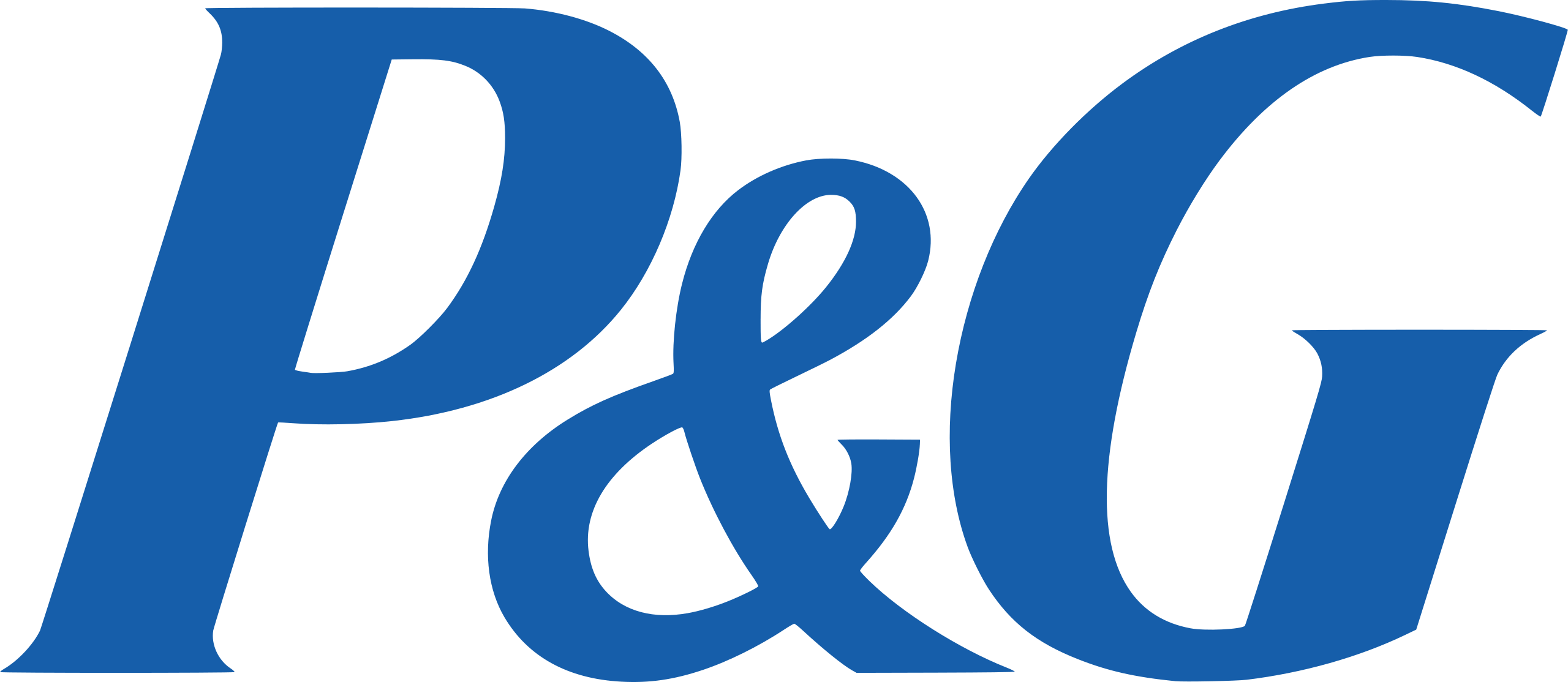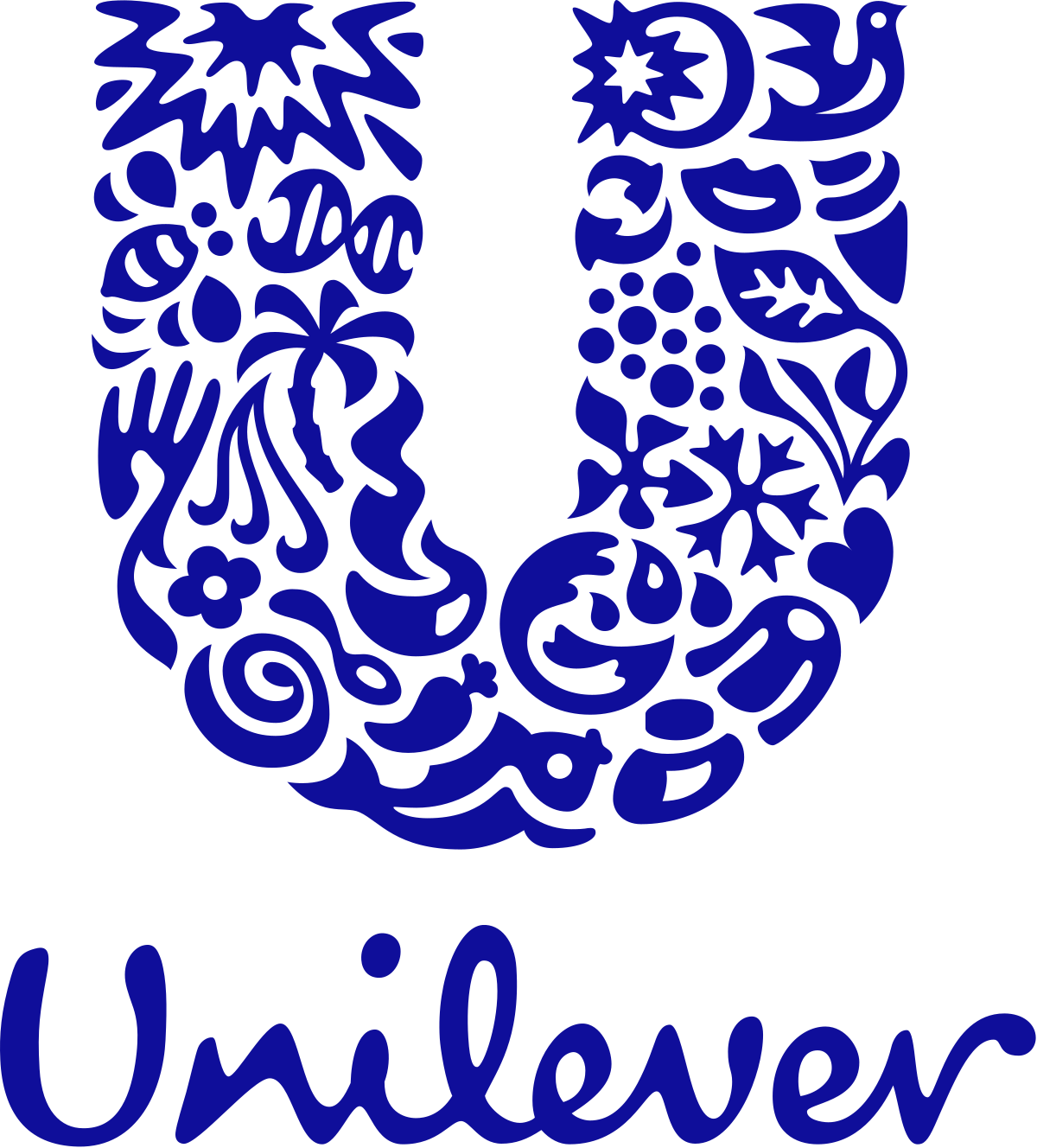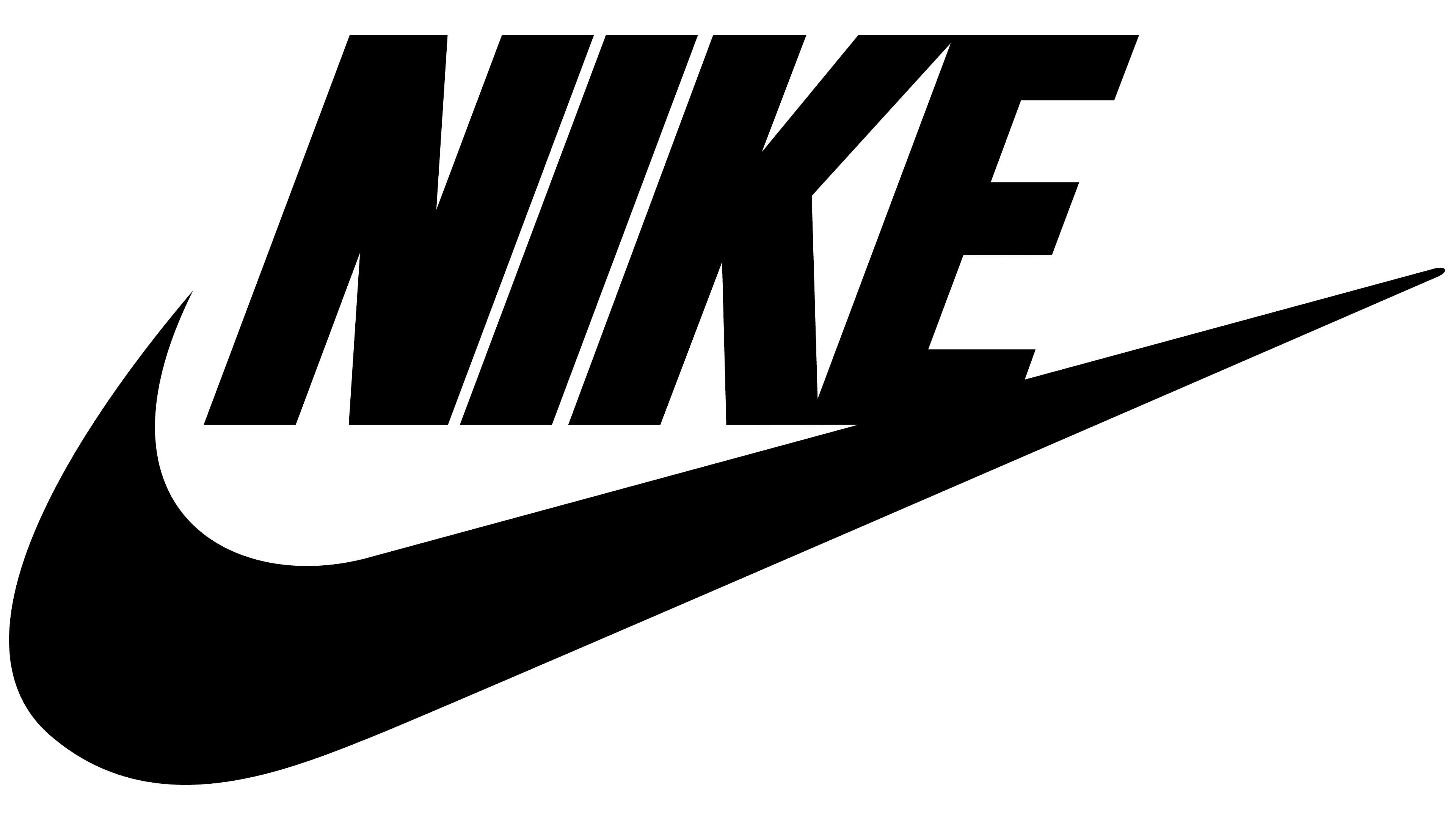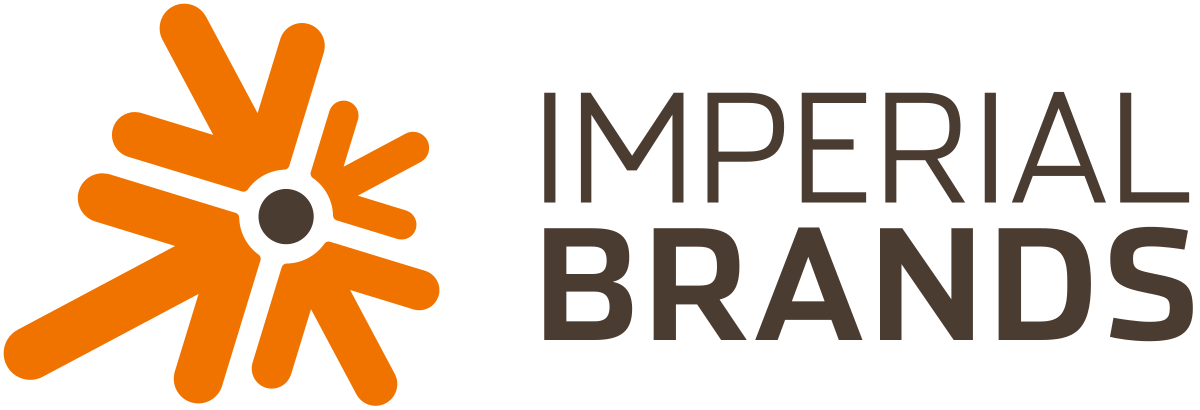Global Customized Skincare Market 2024-2034; By Product Type, By Ingredient Type, By Consumer Focus, By Skin Type, By Application, By Distribution Channel, By Region Forecasts
- Industry: Consumer Goods
- Report ID: TNR-110-1073
- Number of Pages: 420
- Table/Charts : Yes
- April, 2024
- Base Year : 2024
- No. of Companies : 10+
- No. of Countries : 29
- Views : 10220
- Covid Impact Covered: Yes
- War Impact Covered: Yes
- Formats : PDF, Excel, PPT
In Terms of Revenue, the Global Customized Skincare Market was Worth US$ 25.5 Bn in 2023 and is Anticipated to Witness a CAGR of 8.3% During 2024 – 2034. Consumer demand for personalized solutions, rising awareness about skincare, technological advancements, data-driven formulations, and growing preference for natural ingredients are key growth drivers in the customized skincare market.
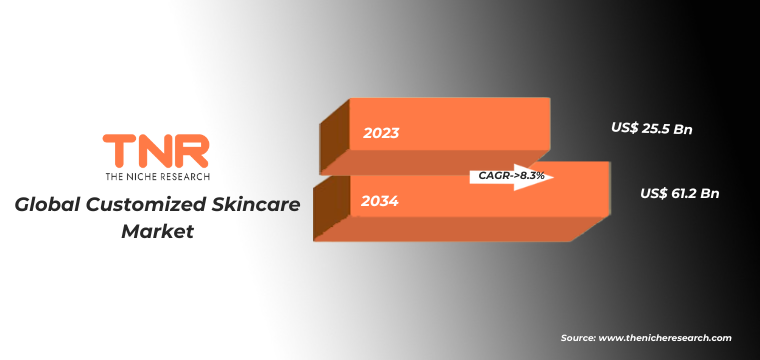 Customized Skincare Market DynamicsIncreasing Consumer Demand For Personalized Solutions Tailored To Individual Skin Concerns And Preferences
Customized Skincare Market DynamicsIncreasing Consumer Demand For Personalized Solutions Tailored To Individual Skin Concerns And Preferences
As people become more conscious about their skin health and appearance, they seek products that address their specific needs, such as acne, aging, sensitivity, or hyperpigmentation. This demand fuels innovation in the skincare industry, leading to the development of advanced technologies like artificial intelligence and machine learning for analyzing skin data and creating customized formulations.
Moreover, the trend towards natural and clean beauty products further drives the customization trend, as consumers seek personalized solutions that align with their values of sustainability and eco-friendliness. Overall, the convergence of consumer demand, technological innovation, and sustainability principles propels the growth of the customized skincare market.
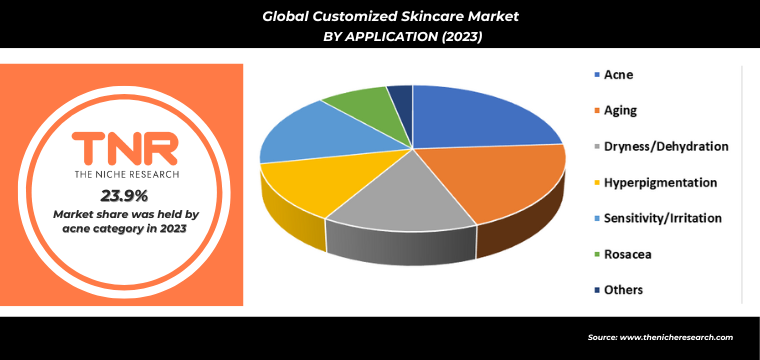 Rising Popularity Of DIY (Do-It-Yourself) Personalized Skincare Solutions
Rising Popularity Of DIY (Do-It-Yourself) Personalized Skincare Solutions
Increasingly, consumers are seeking more control over their skincare routines and formulations, driven by a desire for transparency, customization, and cost-effectiveness. With the availability of online resources, such as tutorials, ingredient databases, and community forums, individuals can now create their own skincare products tailored to their unique needs and preferences. This trend is particularly prevalent among younger demographics who value self-expression and experimentation.
Additionally, the COVID-19 pandemic has further fueled interest in DIY skincare as people spend more time at home and prioritize self-care activities. As this trend continues to grow, it challenges traditional industry norms and encourages innovation in product formulation and education.
 Complexity Of Gathering And Analyzing Accurate Customer Data To Create Truly Personalized Formulations
Complexity Of Gathering And Analyzing Accurate Customer Data To Create Truly Personalized Formulations
Despite advancements in technology, obtaining comprehensive information about individual skin types, concerns, and preferences remains challenging. Factors such as privacy concerns, data security issues, and varying levels of consumer engagement can hinder the collection of relevant data. Moreover, the efficacy of personalized skincare products relies heavily on the accuracy of algorithms and analysis methods, which may not always deliver precise results.
Additionally, the customization process requires significant investment in research, development, and technology infrastructure, which can pose financial challenges for smaller companies. Overcoming these obstacles necessitates a balance between technological innovation, consumer trust, and regulatory compliance to unlock the full potential of personalized skincare solutions.
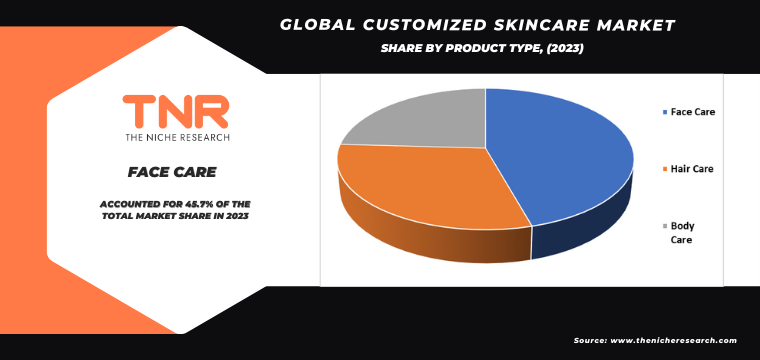 Customized Skincare Market Segmentation by Product Type, Ingredient Type, Consumer Focus, Skin Type, Application, Distribution Channel and RegionThe face care segment is poised to assert its dominance in the customized skincare market, boasting a substantial revenue share of 45.7% over the forecast period. This dominance reflects the enduring emphasis placed by consumers on facial skincare, driven by factors such as the desire for a radiant complexion, the need to address specific concerns like aging or acne, and the growing popularity of self-care routines. Face care products encompass a wide range of offerings, including cleansers, moisturizers, serums, masks, and treatments, each tailored to cater to different skin types and concerns.
Customized Skincare Market Segmentation by Product Type, Ingredient Type, Consumer Focus, Skin Type, Application, Distribution Channel and RegionThe face care segment is poised to assert its dominance in the customized skincare market, boasting a substantial revenue share of 45.7% over the forecast period. This dominance reflects the enduring emphasis placed by consumers on facial skincare, driven by factors such as the desire for a radiant complexion, the need to address specific concerns like aging or acne, and the growing popularity of self-care routines. Face care products encompass a wide range of offerings, including cleansers, moisturizers, serums, masks, and treatments, each tailored to cater to different skin types and concerns.
Additionally, advancements in skincare technology, such as personalized formulations and targeted ingredients, further contribute to the appeal and efficacy of face care products. With the face being a focal point of beauty and self-expression, the dominance of this segment underscores its pivotal role in driving growth and innovation within the customized skincare market.
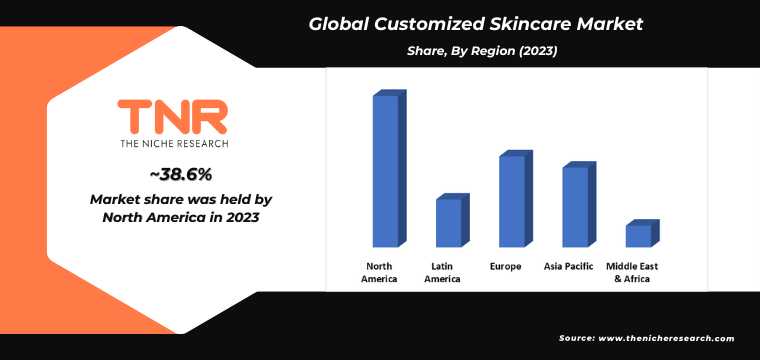 In 2023, Europe is anticipated to play a significant role in propelling the growth of the customized skincare market, contributing approximately 37.9% to its overall expansion. This substantial contribution underscores the region’s robust demand for personalized skincare solutions driven by several key factors. Firstly, European consumers are increasingly prioritizing skincare as an integral part of their wellness and self-care routines, leading to a heightened demand for products tailored to their specific needs and preferences. Moreover, the region’s well-established beauty industry, renowned for its innovation and high-quality formulations, fosters a conducive environment for the development and adoption of customized skincare solutions.
In 2023, Europe is anticipated to play a significant role in propelling the growth of the customized skincare market, contributing approximately 37.9% to its overall expansion. This substantial contribution underscores the region’s robust demand for personalized skincare solutions driven by several key factors. Firstly, European consumers are increasingly prioritizing skincare as an integral part of their wellness and self-care routines, leading to a heightened demand for products tailored to their specific needs and preferences. Moreover, the region’s well-established beauty industry, renowned for its innovation and high-quality formulations, fosters a conducive environment for the development and adoption of customized skincare solutions.
Additionally, factors such as rising disposable incomes, growing awareness of skincare benefits, and evolving beauty trends further fuel the demand for personalized skincare offerings in Europe. Furthermore, the presence of sophisticated distribution channels, including specialty stores, pharmacies, and online platforms, facilitates accessibility to a diverse range of customized skincare products, driving market growth. Overall, Europe’s significant contribution highlights its pivotal role in shaping the trajectory of the customized skincare market in 2023 and beyond.
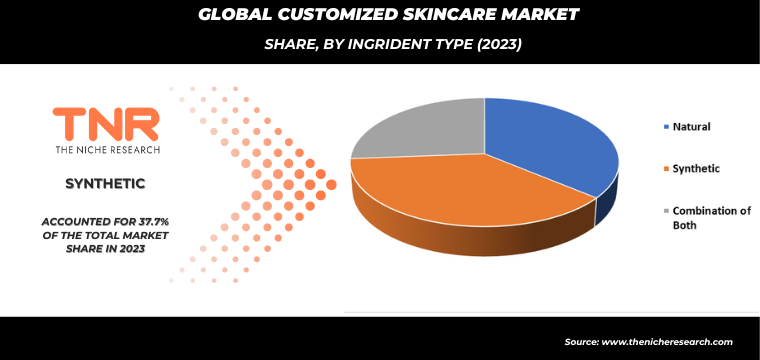 Key Developments
Key Developments
- In August 2021, Function of Beauty made a strategic move by acquiring Atolla, a personalized skincare company. This acquisition was driven by the aim to leverage the complementary strengths of both companies.
- In January 2022, Pure Culture Beauty, a brand specializing in custom skincare solutions, unveiled its product line in Target retail outlets and through its online platform. Customers are required to buy a testing kit from the physical stores, and upon receiving the results, they can upload them onto the website. Subsequently, tailor-made products are then shipped directly to the customers’ addresses.
Major Players in Customized Skincare Market
- A World Product Solutions Company (Evora)
- Bare Anatomy
- Clinique Laboratories, LLC
- Dermacare
- FitSkin Inc
- Function of Beauty
- INTERCOS S.P.A
- L’Oréal
- My Beauty Matches
- Neutrogena
- Other Industry Participants
Global Customized Skincare Market: Key Takeaways
| Report Specifications | Details |
| Market Revenue in 2023 | US$ 25.5 Bn |
| Market Size Forecast by 2034 | US$ 61.2 Bn |
| Growth Rate (CAGR) | 8.3% |
| Historic Data | 2016 – 2022 |
| Base Year for Estimation | 2023 |
| Forecast Period | 2024 – 2034 |
| Report Inclusions | Market Size & Estimates, Market Dynamics, Competitive Scenario, Trends, Growth Factors, Market Determinants, Key Investment Segmentation, Product/Service/Solutions Benchmarking |
| Segments Covered | By Product Type, By Ingredient Type, By Consumer Focus, By Skin Type, By Application, By Distribution Channel |
| Regions Covered | North America, Europe, Asia Pacific, Middle East & Africa, Latin America |
| Countries Covered | U.S., Canada, Mexico, Rest of North America, France, The UK, Spain, Germany, Italy, Nordic Countries (Denmark, Finland, Iceland, Sweden, Norway), Benelux Union (Belgium, The Netherlands, Luxembourg), Rest of Europe, China, Japan, India, New Zealand, Australia, South Korea, Southeast Asia (Indonesia, Thailand, Malaysia, Singapore, Rest of Southeast Asia), Rest of Asia Pacific, Saudi Arabia, UAE, Egypt, Kuwait, South Africa, Rest of Middle East & Africa, Brazil, Argentina, Rest of Latin America |
| Key Players | A World Product Solutions Company (Evora), Bare Anatomy, Clinique Laboratories, LLC, Dermacare, FitSkin Inc, Function of Beauty, INTERCOS S.P.A, L’Oréal, My Beauty Matches, Neutrogena |
| Customization Scope | Customization allows for the inclusion/modification of content pertaining to geographical regions, countries, and specific market segments. |
| Pricing & Procurement Options | Explore purchase options tailored to your specific research requirements |
| Contact Details | Consult With Our Expert
Japan (Toll-Free): +81 663-386-8111 South Korea (Toll-Free): +82-808- 703-126 Saudi Arabia (Toll-Free): +966 800-850-1643 United Kingdom: +44 753-710-5080 United States: +1 302-232-5106 E-mail: askanexpert@thenicheresearch.com
|
Global Customized Skincare Market Scope
By Product Type
- Face Care
- Cleansers and Exfoliators
- Serums and Treatments
- Moisturizers and Sunscreens
- Face Masks
- Others
- Hair Care
- Shampoo
- Conditioner
- Hair Masks
- Hair Oil
- Others
- Body Care
- Body Mists
- Body Wash
- Handmade Soaps
- Silk Soaps
- Sugar Soaps
- Hand Care
- Others
By Ingredient Type
- Natural
- Synthetic
- Combination of Both
By Consumer Focus
- Women
- Men
- Unisex
By Skin Type
- Normal Skin
- Dry Skin
- Oily Skin
- Combination skin
By Application
- Acne
- Aging
- Dryness/Dehydration
- Hyperpigmentation
- Sensitivity/Irritation
- Rosacea
- Others
By Distribution Channel
- Online
- Offline
- Pharmacies
- Beauty Salons and Clinics
- Multi-brand Retailers
- Others
By Region
- North America (U.S., Canada, Mexico, Rest of North America)
- Europe (France, The UK, Spain, Germany, Italy, Nordic Countries (Denmark, Finland, Iceland, Sweden, Norway), Benelux Union (Belgium, The Netherlands, Luxembourg), Rest of Europe)
- Asia Pacific (China, Japan, India, New Zealand, Australia, South Korea, Southeast Asia (Indonesia, Thailand, Malaysia, Singapore, Rest of Southeast Asia), Rest of Asia Pacific)
- Middle East & Africa (Saudi Arabia, UAE, Egypt, Kuwait, South Africa, Rest of Middle East & Africa)
- Latin America (Brazil, Argentina, Rest of Latin America)
Report Layout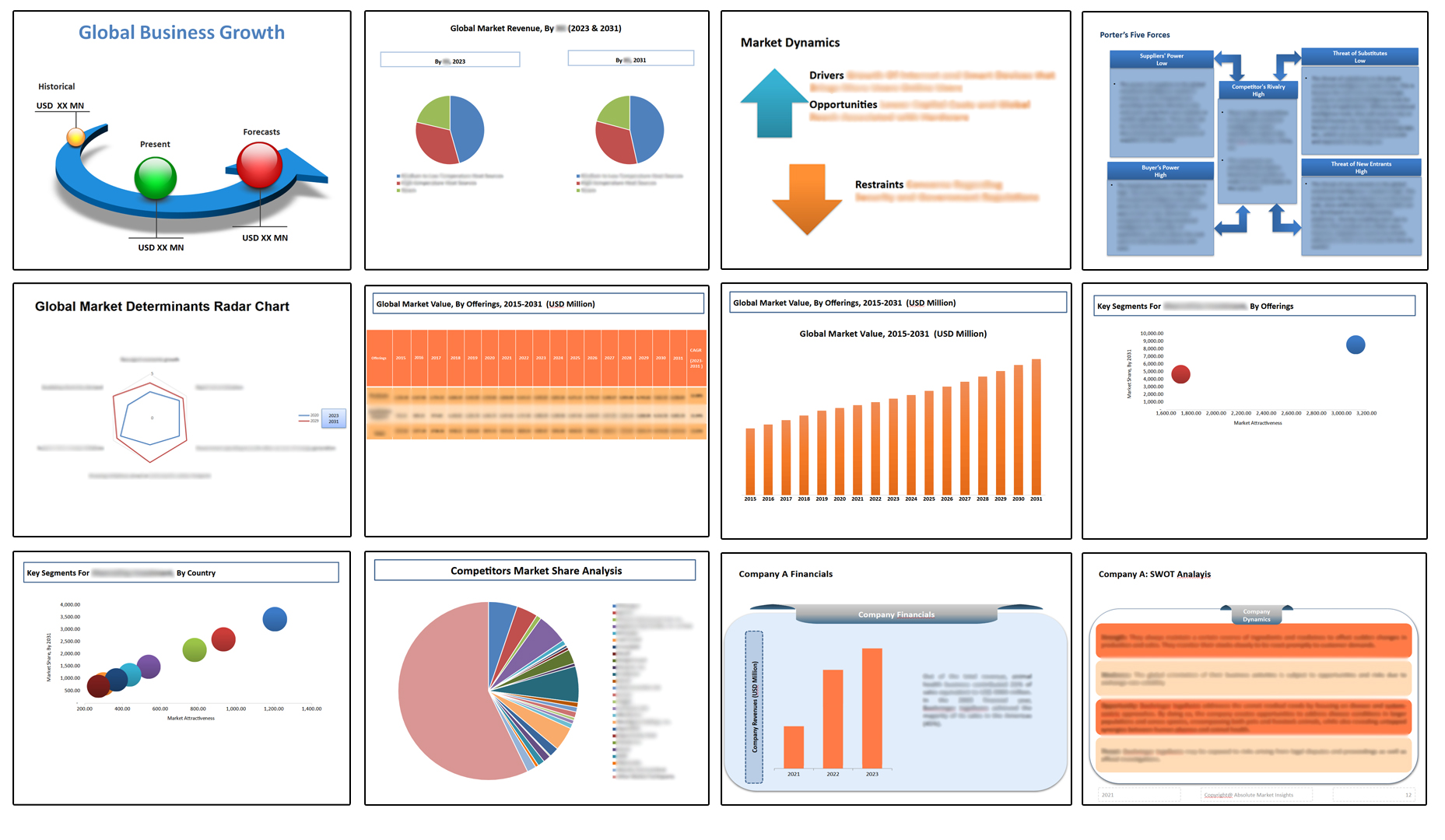
Table of Contents
Note: This ToC is tentative and can be changed according to the research study conducted during the course of report completion.
**Exclusive for Multi-User and Enterprise User.
Global Customized Skincare Market Scope
By Product Type
- Face Care
- Cleansers and Exfoliators
- Serums and Treatments
- Moisturizers and Sunscreens
- Face Masks
- Others
- Hair Care
- Shampoo
- Conditioner
- Hair Masks
- Hair Oil
- Others
- Body Care
- Body Mists
- Body Wash
- Handmade Soaps
- Silk Soaps
- Sugar Soaps
- Hand Care
- Others
By Ingredient Type
- Natural
- Synthetic
- Combination of Both
By Consumer Focus
- Women
- Men
- Unisex
By Skin Type
- Normal Skin
- Dry Skin
- Oily Skin
- Combination skin
By Application
- Acne
- Aging
- Dryness/Dehydration
- Hyperpigmentation
- Sensitivity/Irritation
- Rosacea
- Others
By Distribution Channel
- Online
- Offline
- Pharmacies
- Beauty Salons and Clinics
- Multi-brand Retailers
- Others
By Region
- North America (U.S., Canada, Mexico, Rest of North America)
- Europe (France, The UK, Spain, Germany, Italy, Nordic Countries (Denmark, Finland, Iceland, Sweden, Norway), Benelux Union (Belgium, The Netherlands, Luxembourg), Rest of Europe)
- Asia Pacific (China, Japan, India, New Zealand, Australia, South Korea, Southeast Asia (Indonesia, Thailand, Malaysia, Singapore, Rest of Southeast Asia), Rest of Asia Pacific)
- Middle East & Africa (Saudi Arabia, UAE, Egypt, Kuwait, South Africa, Rest of Middle East & Africa)
- Latin America (Brazil, Argentina, Rest of Latin America)
The Niche Research approach encompasses both primary and secondary research methods to provide comprehensive insights. While primary research is the cornerstone of our studies, we also incorporate secondary research sources such as company annual reports, premium industry databases, press releases, industry journals, and white papers.
Within our primary research, we actively engage with various industry stakeholders, conducting paid interviews and surveys. Our meticulous analysis extends to every market participant in major countries, allowing us to thoroughly examine their portfolios, calculate market shares, and segment revenues.
Our data collection primarily focuses on individual countries within our research scope, enabling us to estimate regional market sizes. Typically, we employ a bottom-up approach, meticulously tracking trends in different countries. We analyze growth drivers, constraints, technological innovations, and opportunities for each country, ultimately arriving at regional figures.Our process begins by examining the growth prospects of each country. Building upon these insights, we project growth and trends for the entire region. Finally, we utilize our proprietary model to refine estimations and forecasts.
Our data validation standards are integral to ensuring the reliability and accuracy of our research findings. Here’s a breakdown of our data validation processes and the stakeholders we engage with during our primary research:
- Supply Side Analysis: We initiate a supply side analysis by directly contacting market participants, through telephonic interviews and questionnaires containing both open-ended and close-ended questions. We gather information on their portfolios, segment revenues, developments, and growth strategies.
- Demand Side Analysis: To gain insights into adoption trends and consumer preferences, we reach out to target customers and users (non-vendors). This information forms a vital part of the qualitative analysis section of our reports, covering market dynamics, adoption trends, consumer behavior, spending patterns, and other related aspects.
- Consultant Insights: We tap into the expertise of our partner consultants from around the world to obtain their unique viewpoints and perspectives. Their insights contribute to a well-rounded understanding of the markets under investigation.
- In-House Validation: To ensure data accuracy and reliability, we conduct cross-validation of data points and information through our in-house team of consultants and utilize advanced data modeling tools for thorough verification.
The forecasts we provide are based on a comprehensive assessment of various factors, including:
- Market Trends and Past Performance (Last Five Years): We accurately analyze market trends and performance data from preceding five years to identify historical patterns and understand the market’s evolution.
- Historical Performance and Growth of Market Participants: We assess the historical performance and growth trajectories of key market participants. This analysis provides insights into the competitive landscape and individual company strategies.
- Market Determinants Impact Analysis (Next Eight Years): We conduct a rigorous analysis of the factors that are projected to influence the market over the next eight years. This includes assessing both internal and external determinants that can shape market dynamics.
- Drivers and Challenges for the Forecast Period:Identify the factors expected to drive market growth during the forecast period, as well as the challenges that the industry may face. This analysis aids in deriving an accurate growth rate projection.
- New Acquisitions, Collaborations, or Partnerships: We keep a close watch on any new acquisitions, collaborations, or partnerships within the industry. These developments can have a significant impact on market dynamics and competitiveness.
- Macro and Micro Factors Analysis:A thorough examination of both macro-level factors (e.g., economic trends, regulatory changes) and micro-level factors (e.g., technological advancements, consumer preferences) that may influence the market during the forecast period.
- End-User Sentiment Analysis: To understand the market from the end-user perspective, we conduct sentiment analysis. This involves assessing the sentiment, preferences, and feedback of the end-users, which can provide valuable insights into market trends.
- Perspective of Primary Participants: Insights gathered directly from primary research participants play a crucial role in shaping our forecasts. Their perspectives and experiences provide valuable qualitative data.
- Year-on-Year Growth Trend: We utilize a year-on-year growth trend based on historical market growth and expected future trends. This helps in formulating our growth projections, aligning them with the market’s historical performance.
Research process adopted by TNR involves multiple stages, including data collection, validation, quality checks, and presentation. It’s crucial that the data and information we provide add value to your existing market understanding and expertise. We have also established partnerships with business consulting, research, and survey organizations across regions and globally to collaborate on regional analysis and data validation, ensuring the highest level of accuracy and reliability in our reports.


